

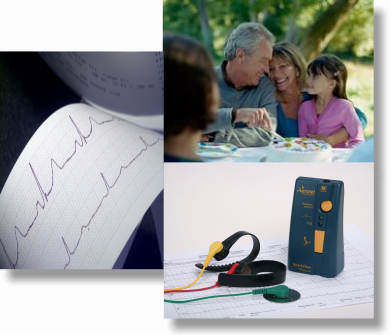
- Heartguardian
in your home!
The leading causes of death in developed societies are cardiovascular diseases. This is why all healthcare activities that can reduce this high number of deaths have great significance.
Telemedicine
During the past two decades, methods using the tools of telemedicine have grown rapidly all over the world. Telemedicine means a special form of healthcare involving a significant distance between the patient and the doctor, which is bridged using telecommunication. It was made necessary by steeply rising healthcare costs and an increasingly pronounced lack of physicians. Its aim is to extend high level care provided by specialists to areas where this would not be possible in the current situation of healthcare. The huge development that information technology and professional instrumentation has undergone guarantees that the transmission of "external signals" is performed without loss of information content to an evaluating and dispatching Control Center operating within the framework of outpatient care or a hospital.
The place of the transtelephonic ECG system within the healthcare structure
The transtelephonic ECG (TTECG) system has become widespread in America and Europe almost at the same time (1976-1980). During the past decade, its application has been extended from proving arrhythmia and angina to the supervision of outpatient or home rehabilitation trainings, which has also proven that all systems are only operable if they can be integrated within the healthcare structure (emergency care, outpatient care, ambulance services), and a skilled team of professionals participates in the operation of the system.
In
Hungary, IMS ltd has been performing significant telemedicinal activities
since 1992.
During the 23 years that has elapsed since the beginning, the company
has gathered a huge amount of experience in this area. Methods that have
been tried and tested abroad were adapted to Hungarian circumstances,
and the company also assumed a significant role in establishing the statutory
background of telemedicine. Its network is exemplary in Hungary, but is
also unique on a European scale.
INTERNATIONAL MEDICAL SERVICES (IMS) LTD.
IMS
LTD. was founded by private individuals with international healthcare
experience in 1990, who are still managing the company today.
IMS LTD offers its wide scope of innovative services as a market leading
healthcare provider with cutting edge instrumentation and a modern IT
background, subject to consistent internal quality control (ISO 9001).
It employs a highly skilled staff of 300 consisting of qualified colleagues
that speak several languages. Its annual patient numbers have reached
170,000 with 675,000 examinations. This is one of the largest private
institution in Hungary which provides a healthcare services which practically
provide complete coverage for the opportunities of outpatient care. (Figure
1).
Main Business Units

The
advantages of IMS Ltd, its unique position in the Hungarian healthcare
service system
» It offers a virtually complete portfolio of outpatient care to
its patients
» Patients have access to care funded by both the National Health
Insurance fund or private means (screening tests, nursing, health development)
» It has a unique telemedicinal network with 24 hour evaluation
hubs established in 16 cardiologic centers throughout the country
» As an Occupational Health Center, it operates as a national employment
health network coordinated using a uniform management system - leveraging
the experience of more than 160 employment healthcare specialists at 180
sites.
» Its home care nursing division is the largest provider of this
type within the country. Home nursing services include specialist nursing
care, physiotherapy, and physical therapy aimed at preventing or shortening
hospitalization
» Its central emergency adult general practitioner Emergency service
has been continuously in operation since 1994
» Its customers have the opportunity to use most health funds in
operation in Hungary to finance the services used;
» Its contracts with foreign health insurance companies make it
possible for foreign citizens to make use of its services using their
own insurance
Description of the Transtelephonic ECG (TTECG) System
The
Transtelephonic ECG device is a special, small sized ECG receiving unit
which can be used to easily record the ECG at any point in time during
work or other activities, and to forward data using wired or mobile telephones,
TETRA radio or Bluetooth-enabled mobile phone to the evaluation center.
The healthcare medical staff (assistant and cardiologist) is in constant
touch with the patient by phone, hears its complaints, and immediately
evaluates the ECG recording. Based on the complaints of the patients and
the ECG diagnosis, the doctor may also dispatch the Ambulance Service
to the patient (Figure 2).
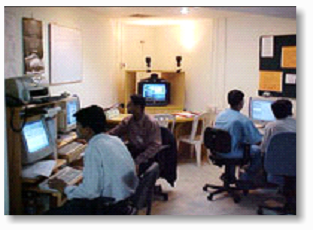
In Hungary, the introduction of transtelephonic ECG is tied to the name of IMS LTD.
Today, the system covers the complete area of the country, operates in 15 cardiologic evaluation centers :
IMS
Center Budapest, 1992
DEOEC Cardiologic Clinic Debrecen, 2006
Pécs University -1nd Department of Internal Medicine, 2008
Szeged University -2nd Department of Internal Medicine and Cardiology
Unit, 2008
Balatonfüred Hospital, 2009
Semmelweis University Cardiology Center Budapest, 2009
Gottsegen Hungarian Institution of Cardiology Budapest, 2009
Borsod-Abaúj-Zemplén Country Hospital and University Hospital
Miskolc, 2010
Vas Country Markusovszky Hospital Szombathely, 2011
Bács-Kiskun Country Hospital Kecskemét, 2012
Budai Irgalmasrendi Hospital Budapest, 2012
Military Hospital - State Health Center Budapest, 2013
Fejér Country Szent György University Hospital Székesfehérvár,
2013
Békés County Pándy Kálmán Hospital
Gyula, 2014
Bajcsy-Zsilinszky Hospital Budapest, 2014
Cardiologic evaluation centers work in close cooperation with the National Ambulance Service, where receiving units may also be in operation in ambulances, as well as with regional hospitals and general practitioner on-call services connected to the hubs.
Nowadays, all the Ambulance Services vehicle is equipped with the TTECG device.
The
TTECG System helps them choosing the most appropriate hospital without
waste of time, improve the direct transport and effectiveness. The safety
of decision of the first responding medical personnel and feeling of security
of the patient definitely increases. (Figure 3).
24 hours TTECG Cardiologic evaluation centers in Hungary
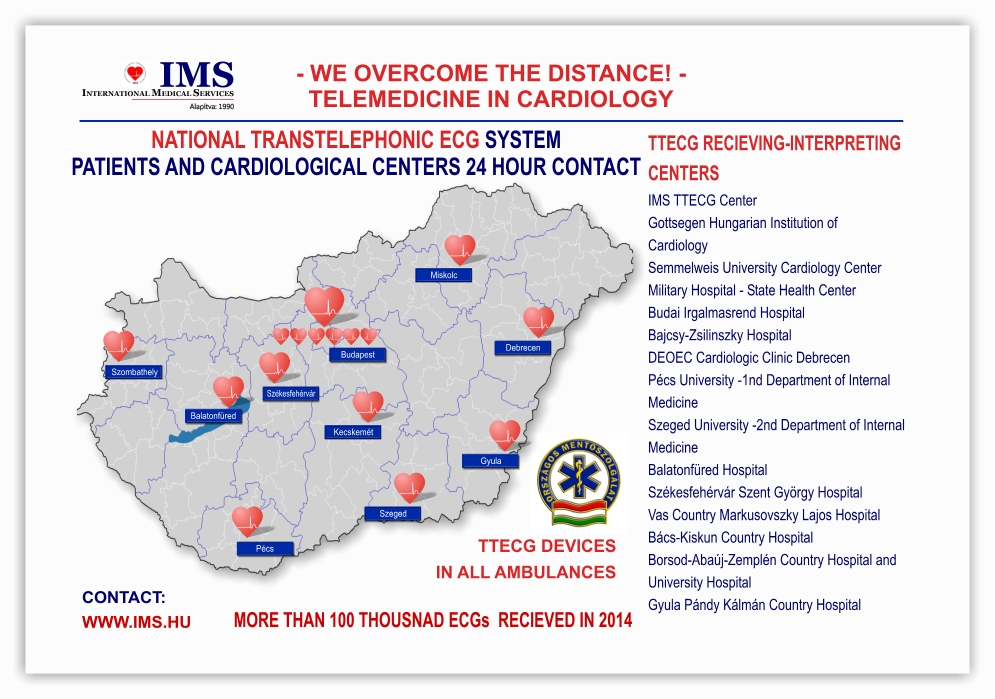
Use
of the TTECG is required:
» for the solution of diagnostic problems (examination of chest
pains, verification of arrhythmia),
» in order to support patient monitoring and care: monitoring the
rehabilitation of patients with cardiac diseases; pacemaker or ICD verification;
investigating the success of arrhythmia treatment;
» monitoring of people living with a high risk of cardiovascular
diseases or performing high risk jobs
The
major benefit of using the system is also apparent in emergency care:
»
It can be used to clearly define patient paths and reduce the time it
takes for high risk patients to be transferred to catheter centers
»
In certain cases, its application can help avoid patients being hospitalized,
and it can also clearly accelerate the recognition time of specific types
of arrhythmia.
All in all, the thoroughly considered application of the system is in strict accordance with professional protocols can reduce healthcare costs.
Operating
forms and users of the System may be:
» Any physician, general practitioner,
or specialist with no experience in the analysis of ECG or in the
specific field of cardiology will record an ECG of the patient with the
recording device, transmit this to the Evaluation Center, and consult
the cardiologist of the Center,
» Following an ECG recording created by the paramedic
unit providing patient care in the field, immediate connection
is established between the paramedic/physician and the center installed
at the regionally competent catheter center in order to define the optimal
patient path,
» The general practitioner or cardiologist provides the patient
with a recording unit for 1-2 weeks in order to clarify its clinical complaints,
» The cardiologist or rehabilitation specialist may also issue the
recording unit for a longer period of time for performing
specific targeted programs (rehabilitation, post-infarction state,
pacemaker verification).
» Professional support for special
programs such as "Stroke prevention and rehabilitation project"
in the field of primary health care .
All incoming ECG signals are stored and analyzed at the high capacity Center. During professional consultation, the Center has the opportunity to send the ECG recording and analysis back to the forwarder of the signal instantly on-line by e-mail. During its activities, the Center has direct telephone connection to the patient, the physician sending the ECG signal, as well as the ambulance unit. (Figure 4).
Functions of the Center:
»
analysis
»
storage
» consultation
»
consultancy
»
taking of action
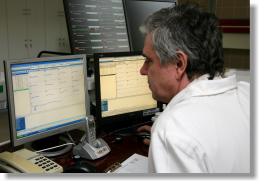
Receiving units (transducers)
The small (palm) sized ECG transducers of the system first convert the ECG signal into voice (voice modulation) into a frequency range so that it can be transmitted to the Center using conventional telephone lines. Any telephone communication may be chosen <main line, extension line, mobile telephone>. The Center performs demodulation (digital transformation of the sound), and the ECG signal appears on-line on the computer screen. The transtelephonic ECG device used by IMS Kft, HEART VIEW P-12/8 is a personal ECG transmitter device that offers 12 lead ECG recording and the recording of long rhythm leads. This device can also be handled easily by patients, as the system makes it possible to transmit ECG signals at any point in time from any location. (Figure 5).
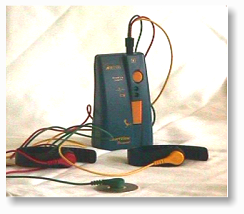
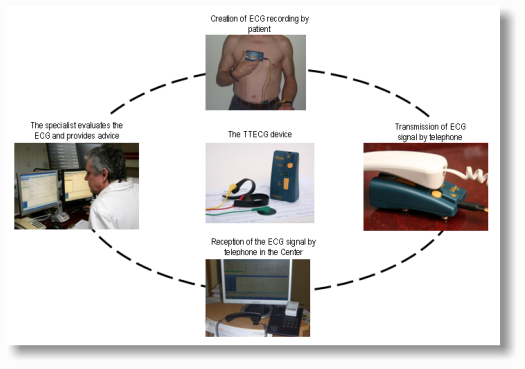
» Clearly reduces the mortality rate of patients with heart disease,
» Results in sorter transport time to the hospital if needed, optimizes patient paths, and reduces health care costs,
» Directly ensures the reception/placement of acute patients in appropriate cardiologic centers,
» Offers a professional consultation opportunity regarding pharmacotherapy and other forms of treatment,
» Increases the perceived safety and thereby quality of life of patients.
Advantages of the transtelephonic
ECG system operated by IMS LTD:
»
The ECG unit is simple to use,
»It
works with both wired and mobile telephones,
»
The patient is in touch with the evaluating healthcare specialist staff,
is able to communicate its complaints and receive clear advice,
»
The ECG received is immediately evaluated by a specialist, based on which
the patient may receive advice,
»
Its background is comprised of a national network which can be established
in any other country,
»
It is therefore very useful in emergency care,
»
Which in turn improves the odds of survival of patients.
IMS LTD does not stop neither of
the new tools and data transmissions nor the development of new methods
for professional and non-professional user groups. (Figure 7).
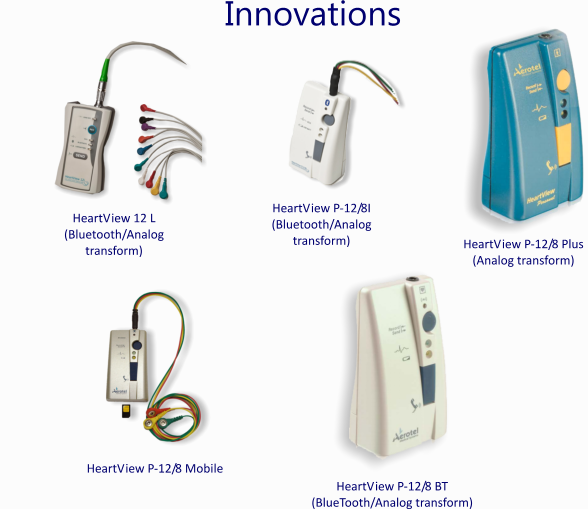
In specific cases defined in Hungary in the professional protocol, the transtelephonic ECG service is a service financed by the National Health Insurance Fund which can be utilized within the framework of Social Security free of charge. Within this form of care, the number of ECG recordings that may be submitted and the usage period are defined.
The state funding changes from one country to the next, and patients may also provide their own funding.
As the benefits resulting from the use of the system have become known on a wide scale, significant demand arose for establishing private forms of financing, and the implementation of innovative, structured service systems together with the cooperation of our professional service provider partners.
Professional Service Provider
and IMS Cooperation Project Strategic Assessment
based on the SWOT methodology
STRENGTHS of cooperation provided by IMS:
» National coverage of the transtelephonic ECG system (TTECG)
» The system is available to customers without geographic or time of day limitation (backed up by a 24 hour hotline specialist consultation also from abroad)
»
A unique professional
project that has been in operation in Hungary for over ten
years, has been continuously enhanced, and has now matured in its complexity
»
Know-how, professional protocols, standard
methodology
»
All technical infrastructure
required for operating is under the exclusive
ownership of IMS (real time system):
1. Receiving and evaluation Centers, as well as connected workstations
2. Upgraded software and servers
3. Transtelephonic ECG (TTECG) devices (12 lead recording and transmitting
devices as well as their accessories)
»
Value represented by the existing workforce:
» Construction and professional acceptance, introduction, and operation
of the project in operation (management function),
» The knowledge gained by the trained and skilled staff of experts,
» A continuously growing customer base generated by special care.
» Integration
into legislative professional guidelines as a system recognized and supported
by the National Advisory Board of Cardiology;
» A
financing agreement signed with the National Health Insurance Fund;
» Existing
market segment, a customer base of over 500,000 users of the system so
far;
Goodwill:
»
Existing and growing customer base during cooperation resulting from the
operation of IMS,
»
The opportunity to extend services.
OPPORTUNITIES of cooperation provided by IMS
Added value:
»
Business opportunities of infocommunication development,
»
Professional and business advantages inherent in the application of telemedicine
and integrated healthcare IT systems
»
New product quality
Product development:
»
Product versions and enhancements
»
New product for the existing customer base
»
Profile extension
Market development:
»
Higher sales on the existing market (public health data, healthcare system)
»
Increased product use (data transmission time of TTECG devices, consultation
time)
»
New methods of usage and sales,
»
New customer groups being added
As a conclusion, we wish to stress that Hungarian and international results serve as evidence that the above can be implemented in any country taking local opportunities and the statutory background into account in an efficient and economic manner.
International Medical Services Ltd.
H-1138 Budapest Váci út 184. Phone: (36 -1) 329-8423 Fax: (36 -1) 349-9349
H-1138 Budapest Vihari u. 29. Phone: (36 -1) 250-3828 Fax: (36 -1) 250-3829
